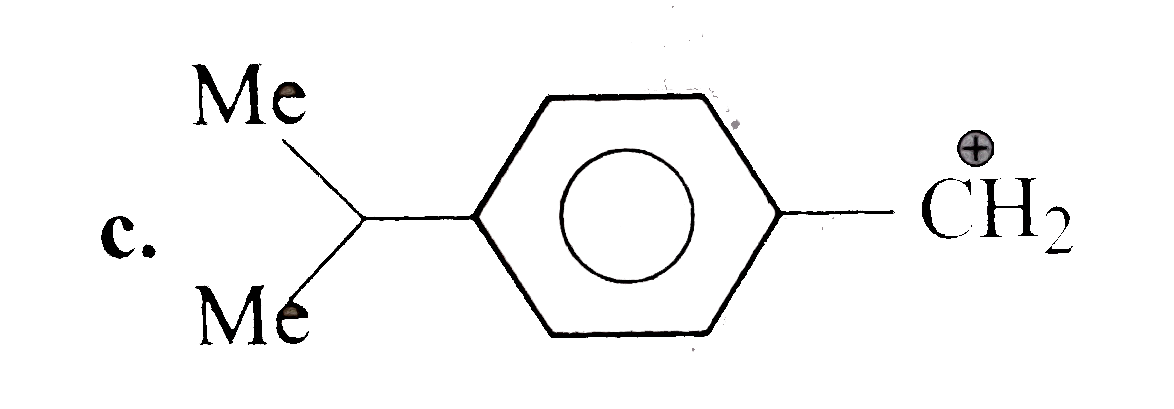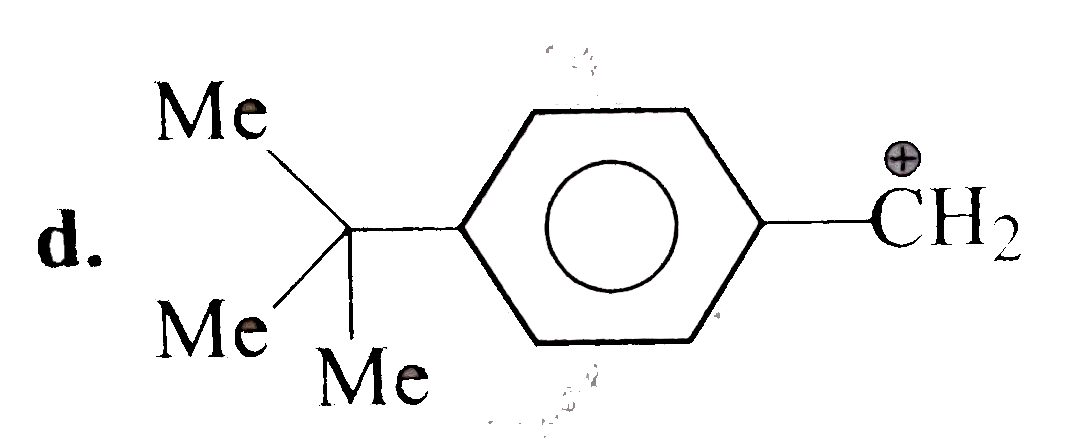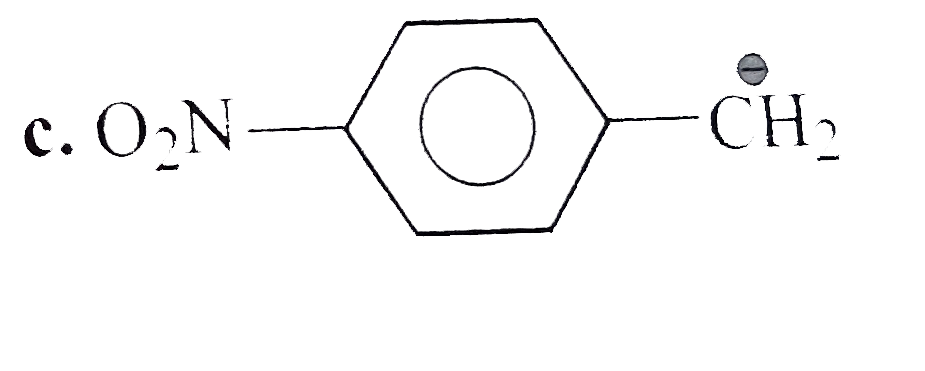An organic reaction occurs by using reagents called electrophiles and nucleophiles via the formation of some reactive intermediates called carbocations, carbanions, free radicals, carbenes, nitrenes, radical cations, and radical anions.
The least stable carbocation is :




The correct Answer is:A
(a) EWG destabilise carbocation (−NO2 is EWG by −I only because there is no benzence ring)/
Topper's Solved these Questions
- GENERAL ORGANIC CHEMISTRYBOOK - CENGAGE CHEMISTRYCHAPTER - GENERAL ORGANIC CHEMISTRYEXERCISE - Multiple Correct
22 Videos
- GENERAL ORGANIC CHEMISTRYBOOK - CENGAGE CHEMISTRYCHAPTER - GENERAL ORGANIC CHEMISTRYEXERCISE - Single Correct
25 Videos
- GENERAL ORGANIC CHEMISTRYBOOK - CENGAGE CHEMISTRYCHAPTER - GENERAL ORGANIC CHEMISTRYEXERCISE - Concept
16 Videos
- CLASSIFICATION AND NOMENCLATURE OF ORGANIC COMPOUNDSBOOK - CENGAGE CHEMISTRYCHAPTER - CLASSIFICATION AND NOMENCLATURE OF ORGANIC COMPOUNDSEXERCISE - Analytical and Descriptive Type
3 Videos
- HYDROGEN, WATER AND HYDROGEN PEROXIDEBOOK - CENGAGE CHEMISTRYCHAPTER - HYDROGEN, WATER AND HYDROGEN PEROXIDEEXERCISE - Subjective Archive (Subjective)
3 Videos
Similar Questions
Knowledge Check
An organic reaction occurs by using reagents called electrophiles and nucleophiles via the formation of some reactive intermediates called carbocations, carbanions, free radicals, carbenes, nitrenes, radical cations, and radical anions.
The most stable carbocation is :APh⊕CH2B C
C D
D
An organic reaction occurs by using reagents called electrophiles and nucleophiles via the formation of some reactive intermediates called carbocations, carbanions, free radicals, carbenes, nitrenes, radical cations, and radical anions.
The most stable carbanion is :APhCH2ӨCH2BPhӨCH2C D
D
An organic reaction occurs by using reagents called electrophiles and nucleophiles via the formation of some reactive intermediates called carbocations, carbanions, free radicals, carbenes, nitrenes, radical cations, and radical anions.
The most stable free radical is :APhCH2.CH2BMe.CH2CMe2.CHDPh.CHMe
An organic reaction occurs by using reagents called electrophiles and nucleophiles via the formation of some reactive intermediates called carbocations, carbanions, free radicals, carbenes, nitrenes, radical cations, and radical anions.
Which of the following contains electrophiles only ?
View SolutionAn organic reaction occurs by using reagents called electrophiles and nucleophiles via the formation of some reactive intermediates called carbocations, carbanions, free radicals, carbenes, nitrenes, radical cations, and radical anions.
Which of the following contains nucleophiles only ?
View SolutionThe most Carbocations, carbanions, free radicals and radical cation are reactive carbon intermediates. Their hybrid orbitals respectively are
View SolutionOrganic reactions take place through the formations of reactive carbon intermediates formed by cleavage of covalent bonds. Formation of these intermediates depends upon the dissociation energies of covalent bonds.
Which is most stable carbocation ?
View SolutionPassage
Organic compounds mainly consist of covalent bonds. The electron pair in these covalent bonds may undergo displacement either of their own or under the influence of other species. The cleavage of covalent bond between two atoms takes place in homolytic or heterolytic fashion. The homolytic fission results into free radicals while heterolytic fission results into carbocations and carbanions. These are also called reaction intermediates and are attacked by electrophiles and nucleophiles. The electrophiles seek electron rich sites while nucleophiles seek electron deficient sites.
Answer the followings Questions :
The most stable carbocation is :
View Solution